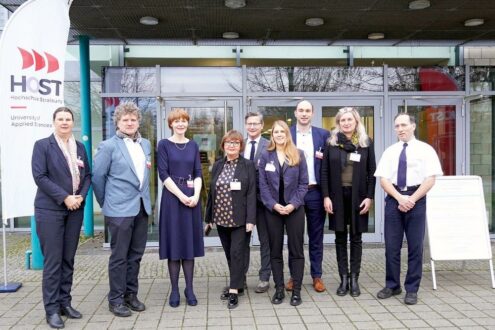
Genetic Diversity: Nature’s Underestimated Lifeline
The European ash (Fraxinus excelsior) provides valuable wood and is an important part of the ecosystem for many species. However, ash dieback – caused by a fungus introduced from East Asia – poses a threat to this European tree species. “Several studies show that some level of resistance to this disease is present in all forests, and this is heritable. Higher genetic diversity increases the likelihood that some trees will have genes associated with resistance,” explains the study’s last author, Prof. Dr. Deborah M. Leigh from the Senckenberg Research Institute and Natural History Museum Frankfurt and Goethe University Frankfurt, and she continues, “We can also observe a higher tolerance to environmental changes in seagrasses, which play an important role in carbon sequestration and as breeding grounds for fish and shellfish species, when they are genetically diverse. These examples illustrate that the protection of genetic diversity is essential for ecological stability.”
Without genetic diversity, nature would lack the ability to adapt, whether to diseases, climate change, or other environmental changes, as emphasized in the newly published study. “This diversity is the basis for the resilience and long-term survival of species – and therefore also for the stability of entire ecosystems,” adds Leigh. Together with first author David O’Brien from the Royal Botanic Garden in Edinburgh and NatureScot, the Scottish Government’s nature conservation agency and researchers from the USA, the UK, Brazil, and Germany, Leigh warns that genetic diversity has been largely neglected to date in political concepts, environmental reports, and economic measures, despite its fundamental importance. Along with species and ecosystem diversity, it is the third and equally important component of biodiversity, says the researcher from Frankfurt. With the advancing development of genetic and genomic analytical methods, it is now possible to record genetic diversity cost-effectively and on a large scale, including the use of so-called proxy data.
The international “Kunming-Montreal Treaty” adopted at the UN Biodiversity Conference in 2022 states that measurable improvements in the status of species, ecosystems, and natural processes must be achieved by 2030 – with the long-term goal of full recovery by 2050. The “nature-positive” approach set forth in the treaty not only aims to halt the loss of nature, but to reverse it and actively restore biodiversity. This goal, as also defined by the International Union for Conservation of Nature (IUCN), extends beyond mere protection and relies on the regenerative strengthening of natural systems to ensure their integrity, diversity, and adaptability in the long term. “It is negligent to disregard genetic diversity in this context. Politics, business, and society must take this essential building block seriously and firmly incorporate genetic diversity into their framework for action. A nature-positive goal that ignores genetic diversity runs the risk of missing the mark,” adds Leigh in summary.
Senckenberg – Leibniz Institution for Biodiversity and Earth System Research // Senckenberg Gesellschaft für Naturforschung
Senckenberganlage 25
60325 Frankfurt
Telefon: +49 (69) 7542-0
Telefax: +49 (69) 746238
http://www.senckenberg.de
Leitung Pressestelle & Social Media
Telefon: 06975421434
E-Mail: judith.joerdens@senckenberg.de
![]()





